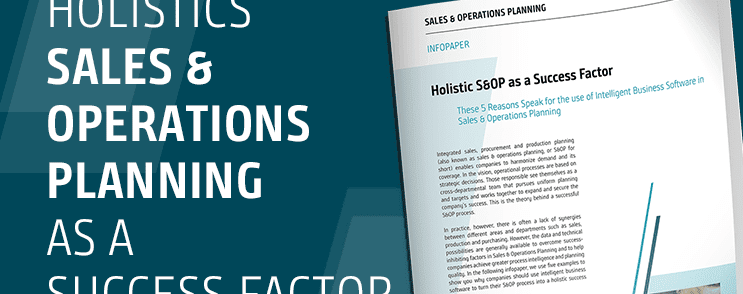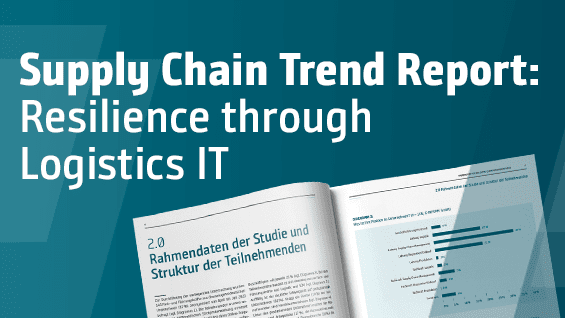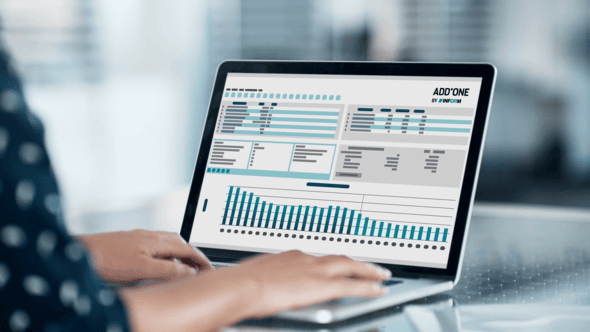Materials planning is an essential part of supply chain management. The efficient planning, control and management of material and goods flows are crucial for ensuring that production and wholesale processes run smoothly and customer requirements are met. In this blog post, we look at the key challenges that planners face on a daily basis and show how decision intelligence (computer-aided processes) can help to overcome them and optimize processes.
What is Materials Planning?
Materials planning refers to the targeted planning, control and organization of the flow of materials and goods within a company. The main objective of materials planning is to ensure the availability of materials and products at all times so that production processes run smoothly and customer requirements can be met on time. Well-organized materials planning helps to optimize stock levels and increase delivery capability by maintaining a balance between inventory costs and supply reliability.
Replenishment in production
In the area of production, replenishment procedures are crucial for optimally controlling the material flow in production and avoiding interruptions. Through the targeted application of demand-oriented replenishment methods, material requirements for production are covered in good time, which increases the efficiency of the entire production process. In this way, replenishment methods make a significant contribution to reducing production costs and increasing flexibility in production.
Replenishment in purchasing
Replenishment in purchasing ensures that materials are procured at the right time and in the right quantity to meet demand. The aim is to achieve an optimum balance between security of supply and storage costs. Consumption or demand-oriented strategies, supported by digital tools such as AI, enable precise planning and minimize excess stock and shortages. Especially when supply chains are disrupted, agile systems are crucial in order to react flexibly to market changes. Strategies such as just-in-time or safety stocks help to ensure competitiveness and optimize costs. Materials planning is therefore a key lever for efficient materials management.
What Materials Planning Processes are there?
There are different MRP methods that can be used depending on the company's requirements and material type. The two main categories are demand-driven and consumption-driven requirements planning.
Demand-driven Replenishment procedures
In demand-driven replenishment, also known as deterministic replenishment, materials are procured on the basis of specific requirement notifications. This method is often used when:
- The demand is irregular
- High value parts or critical materials need to be procured
- Production planning based on fixed orders
A typical example of demand-driven replenishment is material planning in mechanical engineering, where clearly planned quantities are produced in advance.
Consumption-based Replenishment procedures
Consumption-based replenishment, also known as stochastic replenishment, relies on historical consumption data. This method is particularly suitable for materials with more or less constant consumption. Companies using this method produce to stock. The main methods are
- Order point method: Orders are triggered when the stock level reaches a certain threshold value
- Ordering frequency procedure: Orders are placed at regular intervals
These processes are widely used in the consumer goods industry, where the material flow is continuous and predictable.
Parameters for Materials Planning
Various parameters must be defined and monitored for efficient materials planning. Here are some of the most important ones:
- Reorder point: The stock level at which an order is triggered
- Safety stock: An additional stock buffer to absorb unforeseen fluctuations in demand or delivery delays
- Order quantity: The order quantity is the product quantity that the company requests with an order for the production of products or the provision of services
- Replenishment lead time: The time it takes to receive an order and add it to the warehouse
- Batch sizes: This is what manufacturing companies refer to when they determine the optimum number of products to be manufactured
Key challenges in materials planning
- Demand forecast and planning accuracy
One of the biggest challenges in materials planning is accurately forecasting future demand. Inaccurate forecasts can lead to overstocking or stock shortages, which can result in either unnecessary storage costs or production downtime or delivery failures.
- Supplier reliability
Unpredictable delivery times and unreliable suppliers can disrupt the entire supply chain. It is crucial to build reliable partnerships and monitor them continuously. In addition, alternative suppliers (multi-sourcing) should be used.
- Inventory management
Finding the balance between too much and too little stock is a constant challenge. Too much stock ties up capital and storage space, while too little stock jeopardizes the ability to deliver and the associated customer satisfaction.
- Flexibility and responsiveness
In a rapidly changing market environment, planners must be able to react flexibly and quickly to changes. This requires efficient processes and the ability to make sound decisions quickly.
Optimizing Materials Planning: How AI-based Planning Software Helps
AI-based planning software such as ADD*ONE supports the optimization of materials planning and relieves dispatchers in their daily workflow. The software provides support in these areas, among others:
Demand forecasting and analytics
Intelligent business software can analyze historical data and create precise demand forecasts. By using decision intelligence and machine learning, future demand patterns can be predicted more accurately. This helps to avoid overstocking and understocking.
Automated ordering processes
Software solutions can automate ordering processes by monitoring and adjusting order points and rhythms and automatically triggering orders as soon as specified parameters are reached. This reduces manual effort and minimizes the risk of errors.
Supplier management
Intelligent planning software enables the monitoring and evaluation of supplier performance. Realistic data on delivery times, quality and reliability can be used to optimize supplier relationships and identify potential bottlenecks at an early stage.
Inventory optimization
By using decision-intelligent optimization algorithms, ideal stock levels and batch sizes can be calculated. This helps to minimize stock levels and maximize delivery capacity at the same time.
Transparency
Thanks to AI-based software solutions, planners always have precise insight into the entire supply chain. Dashboards and reports provide important key figures and thus help to make intelligent, more consistent decisions. This increases transparency and enables proactive management.
Conclusion
Materials planning is a central component of logistics and production planning in wholesale and production companies. Choosing the right planning process and optimizing planning parameters can increase efficiency and reduce costs. With the right strategies and the support of AI-based planning software such as our ADD*ONE solution suite, material requirements planning can be successfully managed and the company put on the road to success.
Which material planning processes do you use in your company?
If you would like to know how our ADD*ONE solution suite can help you with your daily planning, please visit our website:


























